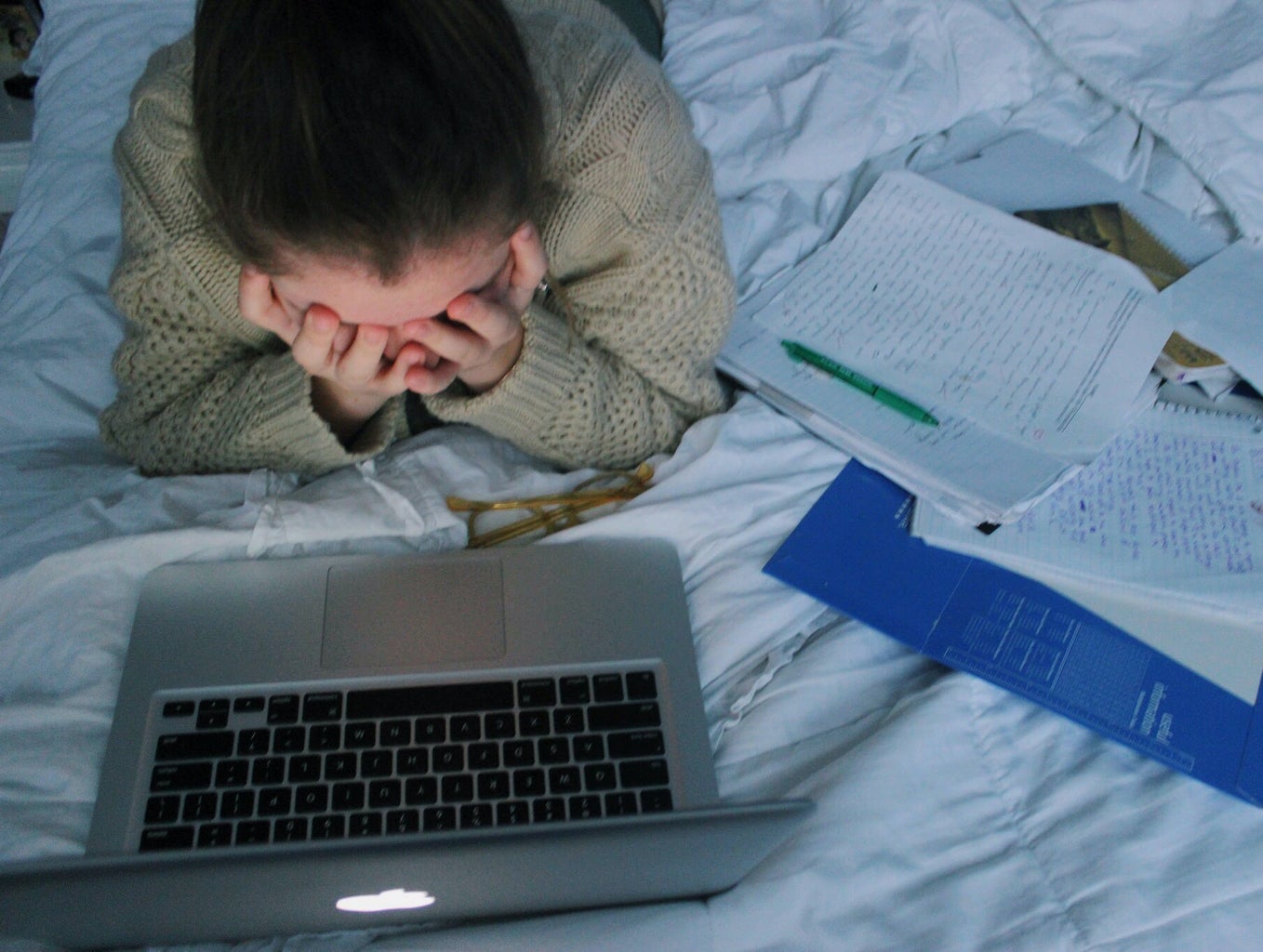Test anxiety is a feeling of distress and worry that is associated with test taking, which impacts your ability to study or perform on the test. Obviously, everyone tends to get anxious when a test is approaching, but too much anxiety can affect your ability to concentrate. It can take a toll on you mentally and it can cause damage to your grades. I personally struggle with test anxiety and I am feeling it more than usual this semester. So, I decided to do some research on tips and tricks that may help combat your anxious feelings about testing and studying.
- At the beginning of your school week, make a schedule of when you are able to set aside time to study.
Good time management is an important thing you need to have as a college student. Telling yourself you are going to study but then ending up scrolling on Twitter or TikTok is likely and it is something that I am personally guilty of. But, I find that making myself a schedule for the week and going to a coffee shop or library helps me eliminate those distractions. Forcing yourself to be out of your comfort zones like in your apartment or dorm can help motivate you to get your work done. My point is that if you set aside this time to work and study, then you should be more confident when you take your exams or tests!

2. Do some relaxation techniques prior to your exams
It may sound dumb, but calming yourself down before you go into an exam can be very beneficial to how you perform! Something that I like to do is an exercise called “Box Breathing.” How this works is you take an inhale for four counts then hold it for four counts, exhale for four counts and then hold it again for four counts. This breathing technique helps you stay in the present moment. It also reduces stress, relaxes your body and can help you stimulate your nervous system!
3. Understanding why you have anxiety (scientifically)
Something that I have learned in therapy is why exactly we, as humans, experience the feeling of anxiety. I never thought this would have helped me, but it has stuck with me ever since. When we feel anxious, it is our body shielding us from some sort of danger. A quote from BeachSideTeen states, “When the brain is anxious, the amygdala suffers from hypersensitivity, and the connections with the PFC weaken. This causes the amygdala to generate multiple false alarms, like perceiving a harmless situation, comment, or personal evaluation as threatening. While this is happening, the prefrontal cortex has trouble inhibiting the amygdala’s racing, out-of-control thoughts…The enormous amount of stress caused by unrelenting anxiety shrinks the hippocampus, the region of the brain responsible for processing long-term and contextual memories.” So something as simple as an exam or quiz can seem like a threatening situation to our brains and causes us to have these anxiety-ridden thoughts. Anxiety can really do damage to your memory so it is important to learn about these facts so you can do whatever you can that may help you.
4.Talk it out!
Going through stress and anxiety alone can be really tough. Talking out your feelings about an exam that is causing you a lot of distress to a family member, friends or a therapist can be a big help. Whether they are helping you prepare for the exam or just simply having someone to give you some positive affirmations can be really beneficial.
5.Get a good night’s sleep
You might think that it will help to stay up all night before your exam to study, but your body needs rest to function properly. This is why it is so important to spread out your studying. Procrastination is a hard thing to beat but it really does contribute to anxious feelings when exam day does come.
The bottom line is you are not alone in feeling test anxiety. It is something that almost every student experiences and it can become a big toll on our mental health. It is important to address the problems you are facing; even if that means realizing you might need to seek therapy in order to help yourself come over these anxious feelings. Put your mental health first so you can be educated to your fullest potential!




